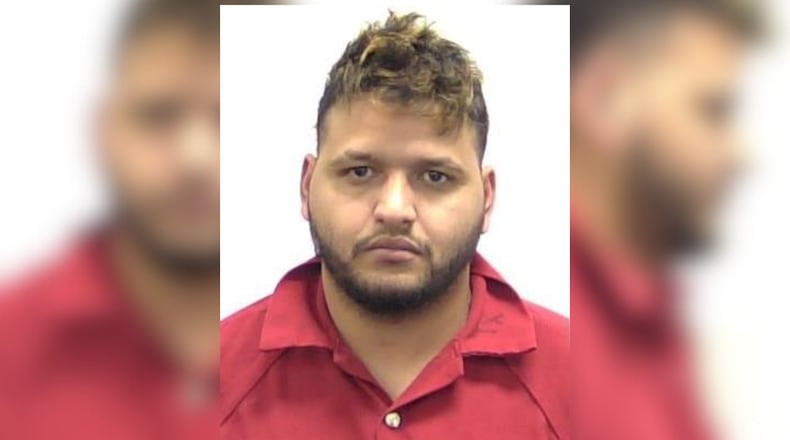The suspect charged in the killing of nursing student Laken Hope Riley on the University of Georgia campus was arrested in 2022 after unlawfully entering the United States, U.S. Immigration and Customs Enforcement said Sunday.
Police arrested Jose Antonio Ibarra, 26, on Friday in Athens on multiple charges including malice murder after authorities discovered the 22-year-old nursing student’s body Thursday in a wooded area near UGA’s intramural fields.
Ibarra, a citizen of Venezuela, was arrested by U.S. Customs and Border Protection on Sept. 8, 2022, after officials say he illegally crossed the border near El Paso, Texas. He was paroled and released for further processing, according to ICE.
“This community, and this entire country, have been rocked by this inexcusable and avoidable murder,” Gov. Brian Kemp said Monday in Athens. “Laken’s death is a direct result of failed policies on the federal level and an unwillingness by this White House to secure the southern border.”
On Sept. 14, 2023, Ibarra was arrested by the New York Police Department and charged with acting in a manner to injure a child less than 17 and a motor vehicle license violation. But he was released by the NYPD before a detainer could be issued, ICE wrote in a statement Sunday.
ICE said that it lodged a detainer after its Enforcement and Removal Operations unit in Atlanta encountered Ibarra on Friday following his arrest on murder charges.
Riley, a student at Augusta University’s nursing program in Athens, had gone out for a run Thursday morning in the trails behind Lake Herrick on UGA’s sprawling campus.
Local law-enforcement authorities had said Friday that Ibarra lives in Athens and is not a U.S. citizen, but did not comment further on his immigration status. They also said Friday that Ibarra has no known affiliation with the university and that investigators do not believe Ibarra knew Riley.
Later Friday night, the U.S. Department of Justice announced it charged the murder suspect’s brother, Diego Ibarra, with possessing a fraudulent U.S. permanent resident card. Authorities say they became aware of Diego Ibarra’s presence in the U.S. as part of the homicide investigation into Riley’s death.
The New York Post reported earlier on the weekend about Jose Antonio Ibarra’s Texas border crossing, after the publication spoke with a woman it said was Ibarra’s wife.
Senior Georgia Republicans said on the weekend that they are exploring new state crackdowns on illegal immigration in the wake of Riley’s death.
Houston Gaines, an Athens Republican who represents the 120th district in the State House, said on Sunday that news of Ibarra’s illegal entry into the U.S. only heightens the sadness of Riley’s death.
“It’s tragic,” said Gaines, whose district includes parts of the University of Georgia. “Obviously our number one priority is to continue to pray for the victim’s family, but we have to recognize that this could have been prevented.”
Prominent Democrats, meanwhile, urged state leaders not to exploit the tragedy for political gains.
Gov. Brian Kemp sent a letter Saturday to the White House demanding details such as the immigration status of the suspect charged with Riley’s murder.
“The American people deserve to know who is illegally entering our country due to your administration’s failures,” wrote Kemp, “and what risks and challenges every state must now face.”
UGA said Sunday that Diego Ibarra, the brother of the murder suspect, had worked briefly at the university.
”Diego Ibarra presented a fake green card to the hiring unit to begin a temporary position as a dishwasher in Bolton Dining Hall at the University of Georgia on Feb. 6, 2024. He subsequently failed to submit further documentation required to keep the job and was never paid by the University. He has been fired,” said a UGA spokesperson in a written statement.
UGA said Jose Antonio Ibarra had not worked at the university.
— Staff writers Fletcher Page and Virginia Anderson contributed to this report.
About the Author
Keep Reading
The Latest
Featured


